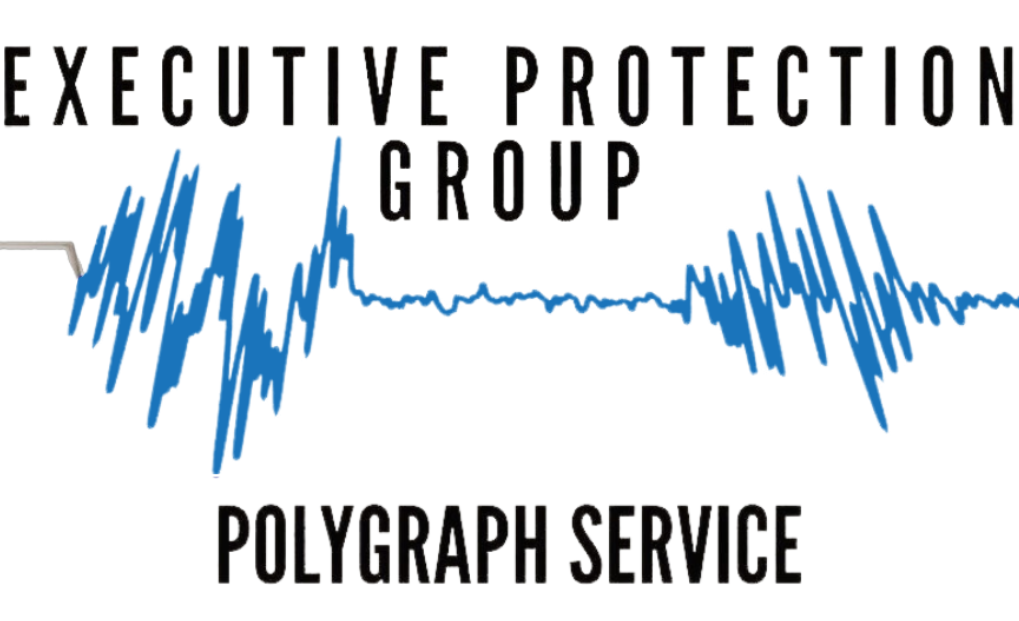Don’t Be Fooled: Why Saying 'I’ll Take a Polygraph' Doesn’t Always Mean the Truth
In this blog, we'll talk about how not to be fooled—or become a fool—when someone tells you they’re willing to take a polygraph test or lie detector test to prove something to you. Whether in relationships, family disputes, or serious accusations, it's important to understand that simply agreeing to take a polygraph doesn’t necessarily mean the person is telling the truth.
As a Licensed Advanced Board-Certified Polygraph Examiner with over two decades of experience and more than 18,000 polygraph exams administered, I can assure you that my advice is based on real-life cases, not fabricated stories. What I write is meant to educate and inform you, helping you avoid mistakes that others have made in the past. This information will ensure you are prepared when it comes to polygraph testing.
An Important Note to Readers: I often include this clarification in my blogs because many people get confused. When you read and observe the words "Polygraph Testing," "Polygraph Exam," or "Lie Detector Test," understand that these terms all mean the same thing. In the early days, everyone was more familiar with the term "Lie Detection Testing." Now, it is mainly called "Polygraph Testing" or "Polygraph Exams," which sounds more professional. So, do not be confused if these words are used interchangeably in this blog; they all mean the same.
To Be Fooled vs. Being a Fool
Definition of Fooled: To be tricked or deceived; duped.
Definition of Fool: A person who acts unwisely or imprudently; a silly person.
Now that you know the definitions, ask yourself: Do you want to be categorized as either of these in life? The answer should be a definitive NO. Yet, many people find individuals become those two strong adjectives when it comes to polygraph testing.
You might find yourself in situations where a significant other, family member or even a roommate is accused of something very serious—whether it's cheating, theft, or something far more serious that could potentially become a criminal matter later on.
The Danger of Being Fooled
You may wonder, “How could I potentially become fooled or be a fool when it comes to someone agreeing to take a lie detector test?” It sounds absurd, right? But it’s not about being fooled if someone takes the test—it’s being fooled or being a fool when you ask someone to take the test and they say yes, followed by your thoughts and actions afterward.
Maybe the first thing you hear when you accuse someone, perhaps of cheating, stealing something from you, doing something inappropriate to your child, damaging your property, or sending an inappropriate text to someone else that you may have read, and their immediate response is, "I didn’t do it,” or “You are absolutely crazy.” The next response may be, “In fact, let’s go take a lie detector test right now to prove myself. Let’s go take one right now, go make that call, and I’ll show you how stupid you’re going to look after I take it.”
So, what happens next? You might think to yourself, Can a regular person even take a lie detector test, or is that only for police and criminal cases? Is that just what I’ve seen in the movies and private citizens can’t take one? Guess what? Anyone—regardless of age, gender, or situation—can take a polygraph test to prove any issue that is important to them or someone they know, to prove they are not lying or misleading or to prove their innocence.
You do some research, find a polygraph business, make the arrangements, and set a date for the test. Now, this is where you risk becoming the fool—or being fooled. Many questions run through your mind about the person taking the exam. You ask them repeatedly, "Did you really do this? Are you lying? Why are you lying?" They respond with the same answers, insisting they’re ready to prove their innocence. Eventually, they even ask, “Are you sure you want to go through with this? Because I am.”
Afterward, you’re left alone with your thoughts. "Am I crazy? Am I imagining things? Did I really see what I saw, or was what someone told me they saw actually true? Am I being gaslighted again for the umpteenth time? Do I need serious mental help?" Hopefully, when you ask yourself these questions, you get good answers back from your psyche. If not, you wrestle with these questions, feeling the weight of stress and anxiety. The day before the test, the night before, or even the morning of, you check with them one last time to confirm they’re still willing to go through with it. Again, they confidently answer, “Yes fool—let’s go.”
This is where you will actually become the fool—or get fooled. You start to think, "If they’re willing to go this far, and I’ve asked them so many times if they’re serious about taking the test and they’ve agreed without any hesitation, I guess they must be telling the complete truth and I was wrong all along. Silly me, I can’t believe I went that far."
Doubt creeps in and you apologize, saying, “I’m so sorry dear; I do love you. You don’t need to take the test anymore, I believe you. I’m just crazy. Let’s cancel.” They, in turn, accept your apology without hesitation, telling you to never bring it up again.
The person doesn’t hesitate or second-guess your decision to cancel. They simply say, “Okay, but do not ever bring this up again.” You agree, apologizing once more, and either they forgive you, or you both leave it at that.
Congratulations—you now hold the title of “fool” or “fooled.” Just because someone—whether a family member, significant other, roommate, or friend—agrees to take a polygraph test doesn’t mean they’re telling you the 100% truth about the matter you want to be resolved. Nor does it mean that they would have passed the lie detector test with complete honesty, either. Often, their willingness is simply a tactic to convince you psychologically that they’re telling the complete truth, hoping you’ll back off and let the issue go.
Now, let me be clear: Not everyone who agrees to take a polygraph test is doing this behavior and trying to deceive you. Many people truly want to prove their innocence and pass the exam with flying colors. I’ve seen this countless times in my decades of experience administering thousands of polygraph tests. On the other hand, I’ve also seen many do the opposite and use the offer of a polygraph as a manipulation tactic, hoping to avoid taking the test altogether and get away with their lie.
So, what should you really do? Ultimately, the decision is yours. But if someone agrees to take a lie detector test, call them out and make their feet to the fire—get your answers, one way or another. This can work in their favor too: if they’re truthful, they’ll have the satisfaction of proving their innocence. Great, they have salt to run in your wounds. If they’re lying or withholding information and you find out, you’ll gain the closure you need and have ammunition to fight back.
A Real-Life Example: The Cost of Being Fooled
Recently, a man contacted me in the middle of the night, panicked, and desperate for a lie detector test. He was being accused of an inappropriate sexual act with a minor. I explained in detail how the polygraph exam would be administered, and he booked the test, prepared to travel to my office the following day. As he and his significant other made the trip, they kept me updated on their progress, including the traffic delays they were encountering.
However, about an hour away from my office, I received a call from his significant other. She informed me they were turning around and heading back, saying, "If my significant other was willing to take a lie detector test and drive this far, he must be telling the truth. I’m not worried anymore." I explained that their decision was their own as mature adults, but I also shared the hard truth from my years of experience in law enforcement and as an Advanced Board-Certified Polygraph Examiner.
I told her that if the minor were to repeat these allegations to someone outside the family—whether it be a concerned parent, teacher, or a friend’s parent—Child Protective Services and the police would be obligated to investigate. In most cases, they tend to side with the minor’s word, and without the proof a polygraph could provide, the accused would have no way to disprove the allegations. This would force him to fight for his innocence in the future.
They chose not to proceed with the test. And as I suspected, an investigation was later initiated by CPS.
Fool or Fooled? The Lasting Consequences of Your Decision
This may not always happen, but in my experience, I’ve been accurate and spot-on 9 out of 10 times when handling serious allegations on various issues. Had the person who originally booked the exam gone through with it, we would have found out if they were telling the truth or lying. But you have to ask yourself: if you’re truly 100% innocent, are you willing to gamble and take that risk—especially if it could cost you your relationship, family, career, or even your freedom, putting you and your life behind bars? My answer would be no if I was given that option.
In closing, the choice lies with you, as a mature adult. Do you want to risk being labeled as a fool or fooled? The decision is yours but remember—the consequences could last a lifetime.
If Executive Protection Group Polygraph Service can help you, please don’t hesitate to call us to schedule your real, authentic, professional polygraph examination to resolve your important matter.
Take the pivotal step towards peace of mind by connecting with Mr. David Goldberg, the founder of Executive Protection Group Polygraph Service. With over a combined 30 years of experience in administering polygraph examinations as an Advanced Board-Certified Polygraph Examiner and Investigator, Mr. David Goldberg brings unparalleled expertise.
Our mission at Executive Protection Group Polygraph Service is clear: to eliminate doubts and ensure you find the closure you deserve to move forward in your life. Specializing in comprehensive and confidential polygraph examinations, we serve clients in Hampton Roads, including Virginia Beach, Norfolk, Chesapeake, Portsmouth, Newport News, Suffolk, Hampton, and beyond. Led by Mr. David Goldberg, a Virginia State Licensed Advanced Board-Certified Polygraph Examiner and nationally recognized expert, our commitment is to deliver immediate, reliable, and accurate results.
To explore how we can assist you further, review our polygraph services or call Executive Protection Group Polygraph Service today to schedule your polygraph examination. Take the first step towards resolution and peace of mind with us.

